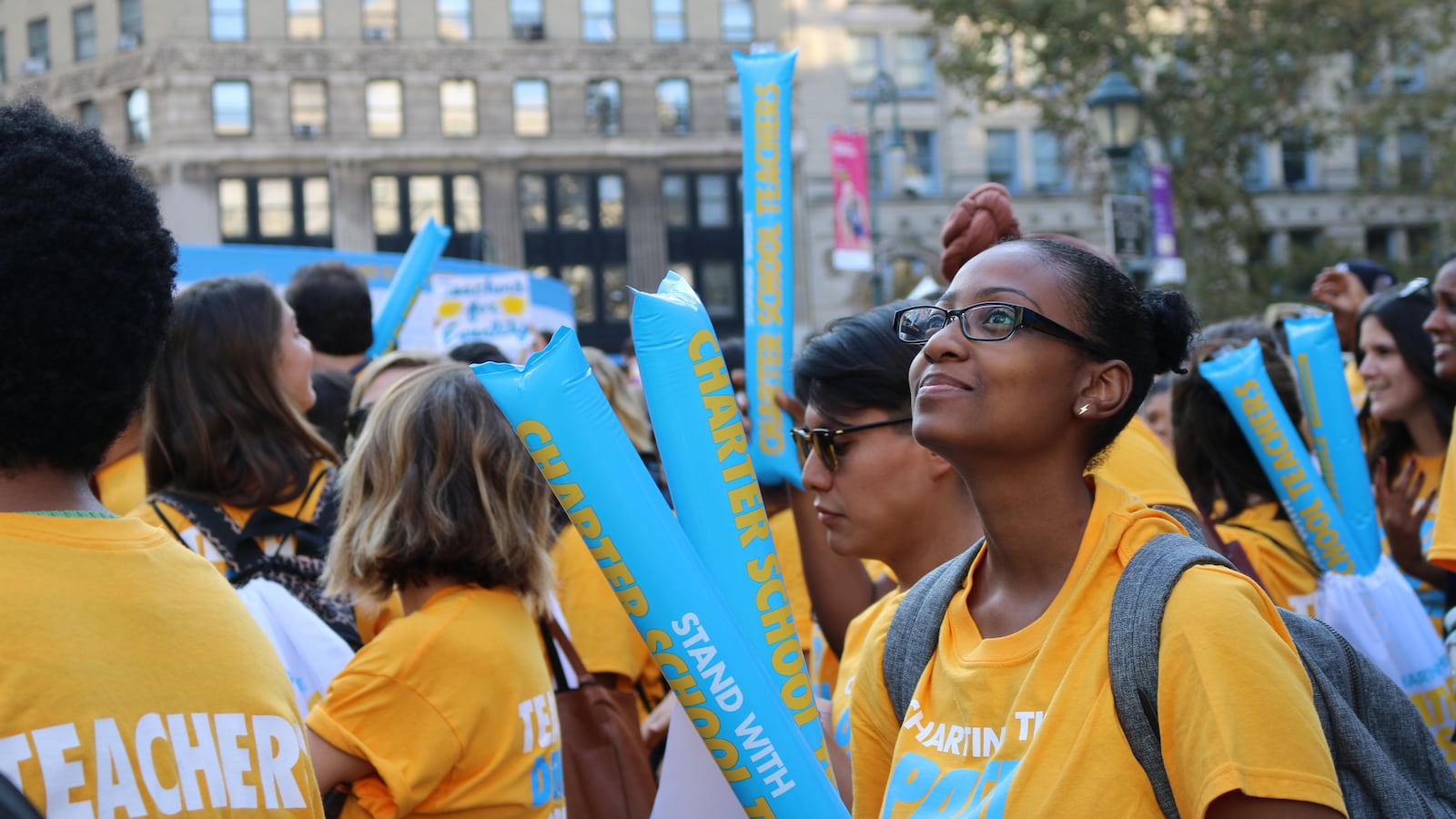In an early test of the tenuous detente between Mayor Bill de Blasio and New York City’s charter sector, charter advocates are challenging the city to find space for 27 new or expanding schools.
De Blasio’s difficult relationship with the city’s charter sector looked like it might turn a corner last month. As part of a deal to extend mayoral control for two years, the mayor agreed to a series of concessions to charter schools, including some that seemed to ease the path for the schools to secure rent or space in city buildings.
For charter operators frustrated by de Blasio’s resistance to sharing space — a marked change from how his predecessor, Michael Bloomberg, approached the schools – the deal raised hope for a new relationship.
Now, some of the mayor’s most ardent critics are asking him to deliver on that hope. On a call Monday morning, charter advocates asked for the schools to get free public space for the 2018-19 school year by September, saying they had completed a new analysis showing that there’s enough available room.
“We were very happy that the mayor is interested in cooperation and collaboration,” said Success Academy CEO Eva Moskowitz, whose network is looking for middle school space for more than 2,000 students. “But we’re on a tight timeline here.”
City Hall quickly responded by saying that the latest analysis, conducted by the pro-charter advocacy group Families for Excellent Schools, does not reflect the full picture of space in city buildings.
“We’ve been in close communication with each charter organization and this misleading report is just another attempt to politicize the education of New York City children,” said education department spokesman Michael Aciman.
The volley repeats a pattern that has played out repeatedly as charter advocates and city officials have battled over space since de Blasio was elected in 2013.
In the latest analysis, Families for Excellent Schools argued that of the 27 space requests, 25 are in districts with “chronically underutilized school buildings,” which it defines as schools that have had more than 300 empty seats since 2012. (The group could not say how many of those schools are seeking 300 seats or fewer.)
But the city said the group had gotten some space estimates wrong and did not include information about planned uses, including grade expansions and new schools, for others. Aciman said city officials would follow state laws governing how charter schools get and pay for space and “assess space requests in a timely manner.”
Aciman said, “We will continue to follow State Law and work with charter schools to assess space requests in a timely manner and ensure the equitable use of school buildings for all students.

